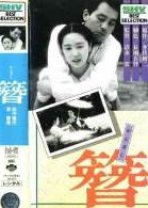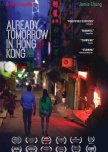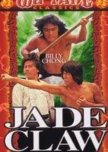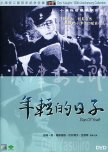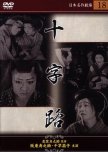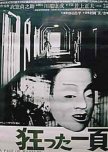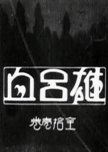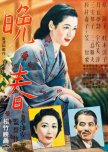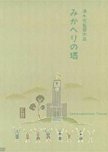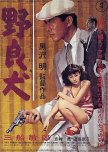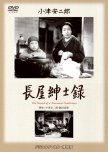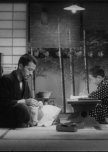
"The sun will show me the way"
While the world was falling into mortal turmoil and the stage was being set for a devastating war, Ornamental Hairpin found a group of people at a quiet inn nestled in the mountains where they could experience healing, friendship, and some moments of respite.Professor Katatae has come to the inn and hot springs for the summer to read. His ruminations are often ruined by traveling parties visiting the inn, making noise and hogging the masseurs. Emi and her friend Okiku are two such pilgrims enjoying themselves. The Hiroyasus have befriended both the professor and a Go playing grandfather staying there with his two grandsons. A young soldier, Nanmura, accidentally steps on a hairpin in the hot springs, extending his stay at the inn. While Katatae continues to grouse about the injury, Nanmura sees it as poetic. Now everyone is concerned whether the hairpin belongs to a young beautiful woman so as not to burst Nanmura’s poetic bubble, misunderstanding his meaning. Turns out the hairpin belongs to Emi and she returns to collect it and apologize. The group takes her in and she decides to stay there with them for the summer, much to the chagrin of a man she left behind in Tokyo.
Ornamental Hairpin was a simple, tranquil story, but not simplistic. Emi may have been the focal point of the story, but this was an ensemble cast of disparate characters who fell into an easy friendship while on vacation. They ate together, soaked in the springs, complained about the food, and even slept uneasily together with the snoring Professor and Grandpa keeping people up at nights. The grandsons Jiro and Taro whined about the sameness of the days but also took time to help Nanmura recuperate and exercise along with Emi. It is in Emi where the story transcended an uneventful vacation romp. She learned to do laundry and enjoyed spending time with the boys. Here where the sun could touch her face she began to long for something more in her life. She was looking to find meaning. While she was drawn to Nanmura and he to her, his life was back in the military and the coming war. When everyone else was preparing to leave, she remained behind, unsure of where she wanted to be and more importantly, who she wanted to be.
The acting was quite compelling. Saito Tatsuo as the Professor, brought the comic relief with his constant state of complaining. Especially when he railed against the noise then kept everyone up at night with his snoring. But it was Tanaka Kinuyo and Ryu Chishu who gave the heartfelt performances. Tanaka and Ryu were forces to be reckoned with in Japanese cinema. Ryu was an Ozu regular, but often as the father, older brother, or patrician friend. Tanaka excelled at playing women in more desperate circumstances. Here they were youthful and the romantic leads, even if the romance was not fully developed. They supported each other, gently and playfully, one time literally when she gave him a piggyback ride! They were soft and almost unrecognizable in these strangely easy-going roles. Tanaka conveyed the longing of her character for the sun on her face and freedom in her life beautifully.
Ornamental Hairpin was the ideal summer vacation for a group of people who became friends over dinner and soaking in the healing waters. Idyllic scenes of bubbling rivers, mountains, and trees gave way to reality calling again. A hint of melancholy also floated through the mists with the already present food shortages and war looming on the horizon. Emi, walking alone on the paths they’d traveled together had to discern the path ahead for herself. This film captured a cozy, funny, bittersweet moment in time for a group of strangers who became friends and faced uncertain futures.
12 May 2024
Was this review helpful to you?

